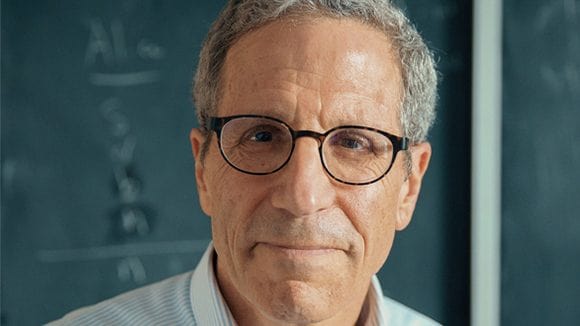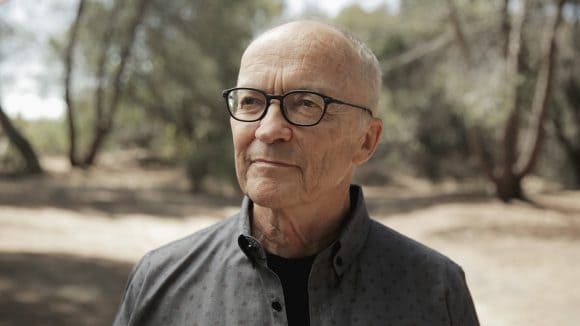Richard Thaler doesn’t take himself too seriously, he laughs a lot, answers questions with stories, and his office has an eclectic feeling of being both an academic space and something fun. He admits that starting his economic career by criticizing the discipline itself, may have been crazy but that he has been lucky. However, after almost 40 years in the field, it’s safe to say it’s been much more than a case of good luck.

Richard H. Thaler
Richard H. Thaler
The Sveriges Riksbank Prize in Economic Sciences in Memory of Alfred Nobel, 2017
At a glance
Born: 1945, East Orange, USA
Field: Behavioral economics
Awarded: The Sveriges Riksbank Prize in Economic Sciences in Memory of Alfred Nobel, 2017
Prize-winning work: Incorporating psychologically realistic assumptions into analyses of economic decision-making
Red or white: “The first duty of a wine is to be red.”
Favorite hobby: Golf
Best gift: A NO! button, or his “No-bell”, a gift from Alvin Roth
What was the controversy surrounding Thaler's Nobel Prize and his approach to economics?
What was the controversy surrounding Thaler's Nobel Prize and his approach to economics?
When it was announced that Thaler had been awarded the Nobel Prize, it was met with some controversy. While some economists enthusiastically accept the introduction of psychology into the field, others are still vocally skeptical about merging the two. This has been a battle that Thaler has been fighting his whole career, tracing back to a column he wrote in the 1980s. Appearing in the Journal of Economic Perspectives, published by the American Economic Association (AEA), Thaler called the column “Anomalies”, a tongue-in-cheek name and nod to his overall approach.
Fellow Nobel-winning behavioral economist, Daniel Kahneman, describes the articles as “nothing short of brilliant, funny and were always in some way devastating to a piece of theory.” Kahneman goes so far as to credit the column for having a significant influence in the acceptance of behavioral economics.
“I've been at this for 40 years and I always say that I don't think I changed anybody's mind,” Thaler says. “People don't change their minds about anything. So I took this strategy of corrupting the youth and trying to get young economists excited and interested.”
What is the concept of choice architecture and how does it relate to Richard Thaler's book, Nudge?
What is the concept of choice architecture and how does it relate to Richard Thaler's book, Nudge?
Thaler graduated from writing a regular column and went on to write books. The book that put him in the spotlight, Nudge: Improving Decisions About Health, 'Wealth, and Happiness', is a New York Times bestseller and looks at the choices we face every day. The book introduces the concept of choice architecture, arguing that people need structure in order to make decisions and therein lies the opportunity to create structures that lead people to make better decisions.
“The idea of a nudge is that we never make choices in isolation,” he says. “You can't avoid nudging like you can't avoid choice architecture.”
He uses the cafeteria at the University of Chicago Booth School of Business where he is a professor as an example, where the first thing one sees when they enter is a salad bar. “This is an example of how something that seemingly isn't very important may influence what people eat, nudge people to eat something healthy,” he says. “There has to be a design of that cafeteria. Why don't we make it a good one?”
The argument could be made that people would eventually make decisions without an intentionally designed “choice architecture” but Thaler doesn’t see much weight in that. As the self-proclaimer person with the world’s worst direction, an analogy he likes to use is GPS systems. At its core, GPS is a tool to help you get where you want to go, it does not dictate where you go, just how to get there.
“Imagine we have GPS for life that just made getting where you want to go easier, without ever commanding that you do something,” he says.
Has this question inspired you?
Get the latest Nobel perspectives delivered to you.
There has to be a design. Why don't we make it a good one?
What is the potential of using nudging in healthcare and how could technology play a role in it?
What is the potential of using nudging in healthcare and how could technology play a role in it?
Nudging isn’t all salad bars and arriving on time. It is also found in areas such as pension systems, consumer behavior and healthcare. When it comes to healthcare systems in particular, the potential is not only huge, it could be life-saving. The technology already exists – and is accessible to anyone with a smartphone – to track your steps, your calorie intake and the hours of sleep you get. For diabetics, the technology exists to properly monitor blood sugar. It’s not a far stretch then to imagine what the next steps in this could be. Whether it’s implanted chips to measure heartbeats or a device to automatically administer certain medications, Thaler sees unlimited possibilities.
“That’s going beyond nudging, right?” he asks, knowing the answer. “That’s just taking over, but in many cases that’s what we want. Just like self-driving cars, we can have self-driving medications.”
Technology that is well-suited to behavioral nudge enhancements also applies to those tools with global results. From smart thermostats to smart TVs, appliances that go into different power saving modes are becoming the norm.
“There are things like labeling that we can do better in terms of how much energy it will use,” he says. “We're getting better. And these are all little things but the only way we're going to deal with climate change is a lot of little things.”
What is mental accounting and how does it affect our financial decisions?
What is mental accounting and how does it affect our financial decisions?
Another term developed by Thaler is mental accounting. Simply put, this is how people manage and designate their money. Most people, and companies alike, set aside certain amounts of money for certain things and activities as a form of budgeting. But treating money as something not interchangeable isn’t always rational. If there’s no money left in a company’s equipment budget and a printer dies near the end of the year, then there is no printer. That same company could have money left in the travel budget, with no upcoming travel, but still deny the printer request.
“I think putting labels on money has a long history and serves a purpose,” Thaler says. “So it starts with a sensible reason but then people take it to places that don't make any sense.”
Thaler also gives the example of a new pair of shoes that are on sale. Do you buy them just because they’re on sale? Say you buy the shoes but they hurt terribly. The question then becomes how long do you leave them in the back on your closet, never to be worn again, before finally getting rid of them? The sunk cost fallacy, he says, is also directly at play here.
“My prediction is the more you paid for them, the longer they stay in the closet before you throw them away,” he says.
When Thaler won the Nobel Prize, which is coupled with a cash prize as well, he was often asked what he intended to do with the money. “It’s an amusing question to ask a behavioral economist because how would I know?” he asks.
He jokes about the possibility of setting up an account where that money could be put, the Nobel account, and putting purchases on the Nobel card. “Whether it would be smart or dumb would be controversial among economists,” he says. “They would say it’s dumb because money is fungible, but it might make life more enjoyable so who’s to say it’s dumb?”
How does behavioral finance explain irrational investment decisions?
How does behavioral finance explain irrational investment decisions?
For the last 25 years, Thaler has been involved with an asset management firm, Fuller and Thaler, that focuses specifically on behavioral finance and investment management, an application the firm pioneered. Combining cognitive psychological theory and finance to provide explanations as to why people make irrational investment decisions is at the core of what they do.
“What we've found is that there are classes of situations where investors make systematic errors and those create buying opportunities,” he says. “We classify those errors into two categories, overreaction and underreaction.”
“People are reluctant to sell a stock that they've lost money on,” he says. “If you sell a stock that's gone down, you have to admit to yourself that you made a mistake. Whereas if you hold onto it, there's always hope that it could come back.”
How has behavioral economics impacted retirement planning in the US?
How has behavioral economics impacted retirement planning in the US?
As Thaler points out, the difficulty of saving for retirement is a relatively new problem for our species. If you lived a long life 100 years ago, the expectation was that your children would care for you in your older years, but the dispersal of families coupled with longer life expectancy has created a new societal problem. Pensions, which seemed to present a solution at a time, were relatively short-lived.
“Companies didn't want to offer those kinds of pensions anymore and now we put the burden on employees to figure out how much to save and how to invest,” says Thaler. “And that's a really hard problem, so we need to help them.”
Relatively new plans have started in the US and according to Thaler, this is a domain in which behavioral economics has had a big impact. Used by most large firms in the US today, three specific strategies have been put in place to simplify things and to help nudge people. Automatic enrollment, automatic escalation and the creation of default investment vehicles.
“My mantra in designing policies is if you want to get people to do something, make it easy,” he says. “And we've made retirement saving easier. We want to use that same strategy wherever we can.”
If you want to get people to do something, make it easy.
Has this question inspired you?
Get the latest Nobel perspectives delivered to you.
What is Richard Thaler's prediction for the future of economics and economists?
What is Richard Thaler's prediction for the future of economics and economists?
It’s safe to assume that someone as influential as Thaler has been to economics would have some insightful predictions about the future of the field. But, as is often the case with him, he begins with a bit of humor before digging in an answer.
“As a famous American baseball player Yogi Berra once said, ‘Predicting is difficult, especially about the future,” he grins. “One thing we can say is that economics as a field has become much more empirical over the last 30 years and I think it's indisputable that economists are the most sophisticated users of data in the social sciences.”
Being on the cutting edge of data science and machine learning means that the average economist may find themselves working more in the private sector in coming years, says Thaler. Whether in e-commerce or other B2C companies, he thinks economists will be collaborating alongside AI designers and other developers.
A big part of Thaler’s own career and general view on life has been to put a certain level of importance on doing what he likes most. He encourages others to consider this too.
“If you can, find a job that you take personal satisfaction from doing,” he says. “It sounds like easy advice for a professor to give but when you're coming out of school, you have some choices to make. And some of the options will be more fulfilling than others.”
“Economists wouldn't say they leave out fun, but you'd have to look very hard before you found it in the model,” he says with a smile, willfully aware that he is not one of those economists.
Why do countries have to find better ways to grow?
Hear Michael Spence's view on how countries can grow sustainably while having a long-lasting positive impact.
Related articles
More Nobel Laureate stories
Has this question inspired you?
Get the latest Nobel Perspectives updates delivered to you.



